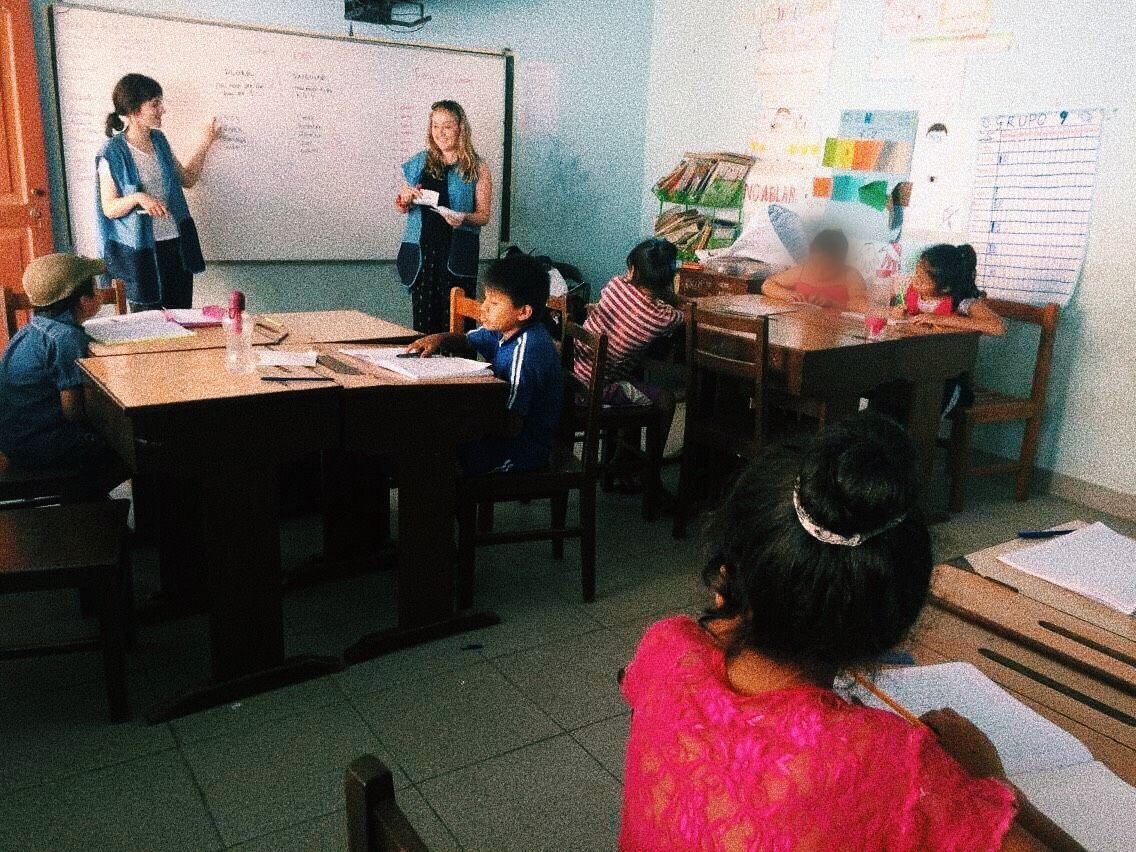
An honest guide to avoiding ‘Voluntourism’
Volunteering and ‘voluntourism’ are two very different things.
There is no doubt that volunteering abroad offers an incredible adventure, but there lies a lot of responsibility in the hands of volunteers to make sure their journey is as positive for the people they are trying to help, as it is for themselves. The idea of travelling to ‘find yourself’ and change the world single-handedly is a vision being sold to, and unfortunately being bought by, thousands of students and young people all the time.
This dated issue is called ‘voluntourism’, and it is often associated with all the awful stereotypes of the ‘gap yahhh’ go-er. This isn’t meant to put you off the idea of volunteering abroad and I really don’t want to break your big well-intentioned hearts.
Here, I aim to give you some advice in becoming a sustainable international volunteer, not that guy/gal who went abroad once and now sports dreads and a selection of gaudy harem trousers…
1. Do your research:
Do thorough research on your organisation, both for the sake of your own wellbeing, and to ensure the one you choose has a positive reputation for working alongside local communities and takes into consideration the most pressing needs. A good way to research your charity is to read online reviews from previous volunteers instead of relying on the pretty promotional materials given to you. Another good way of judging the authenticity of a volunteer program is to look at the requirements for volunteers. Often, the stricter the requirements, the more likely the organisation is to operate ethically.
2. Don't be afraid to ask:
“Are we provided snacks?” may be a bit too far, but asking questions about how your organisation operates is essential in being a sustainable volunteer.
Your aim should be to make certain that companies don’t take advantage of your good intentions, and ensure the money you have raised and the work you are doing is benefiting the needs of the local community directly, and not the staff of the organisation you are working for. Don’t feel embarrassed to ask where your donations are going, and always be skeptical if the organisation refuses to be completely transparent with you.

3. Know your stuff:
If you don’t, it could be more efficient for organisations to take your donations and hire locals to do the work. Whether you’re going abroad to teach English, do construction work or even health care service, make sure you either train before you leave, or ask the organisation if they conduct training when you arrive. If there is a true deficit of skills among local people, it will be very advantageous for host countries to welcome the help and insight of foreigners.
Don’t turn up on your first day ready for a photo shoot, to play rounders and to leave. Even though you are ‘just’ a volunteer, your work is undoubtedly important, so make sure you can do your job well.

4. Brit's abroad:
Perhaps one of the more obvious suggestions, before travelling you must be aware of the customs, laws and cultural sensitivities of your host country. We’ve all heard those nightmare stories of topless girls and ‘lads on tour’, please we’re all trying to get rid of that ‘Brits Abroad’ stereotype over here.
Get clued up on the your locations way of life, history and maybe even a bit of the language before embarking on your adventure (shout out Duolingo).
5. Sorry, but it's not all about you:
Yes it’s lovely to show your gran the pics your jollies, but remember, if you’re volunteering abroad for the right reasons, the attention shouldn’t be on you, it should be on the cause. It’s key to go into a project with thoughts being focused on what is needed and not what you want. The results from this will be so much more rewarding than 200 likes on your insta. Being prepared to serve ethically and sensitively should be your main priority – not an extra paragraph on your CV.
6. Start in the right places:
Finishing at the very start, if you want to participate in sustainable volunteering, a good place to start looking is our very own Leeds RAG society which offers many international projects. You can find out more here.

No matter where you go though, always remember to ensure that the impact you have made on your journey is a positive one and your stay has maximised benefits to your host community. Be smart about your altruism, and strive to be culturally aware and well informed on ways in which you can help.
Remember to constantly ask yourself what skills you are bringing, and what you are going to leave behind. I’m sure you’ll do great; just don’t come back with a bindi please.









































